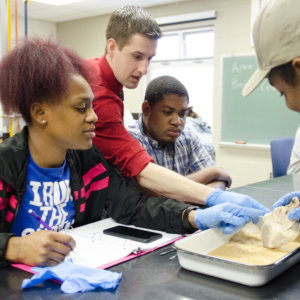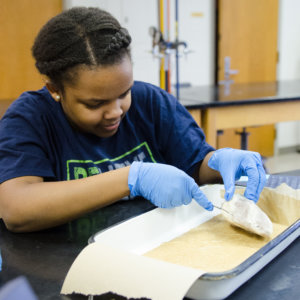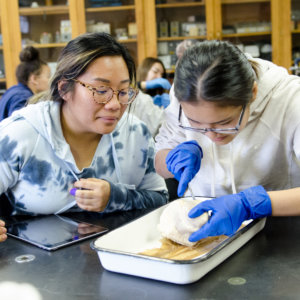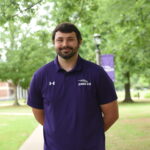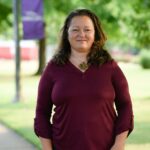From Nutrition and Anatomy & Physiology to Drug Education and Exercise Physiology, the Health Science program gives students a comprehensive understanding of how the human body functions and what it needs to maintain a healthy status. The Health Science program at U of O allows for diverse and flexible training granting students the ability to mold their academic learning to their personal interests and professional aspirations.
Degree Outcomes
Courses prepare students for Allied Health Professions programs (physical therapy, occupational therapy, physician’s assistant, etc).
A common step for many graduates is to continue their education at Exercise Science and Public & Community Health graduate programs.
Graduates can test for certifications such as certified personal trainer (CPT) and certified exercise physiologist (EP-C).
Example Courses
-
HSC 2014: Anatomy and Physiology
 Comprehend the location and function of various body systems (muscular, cardiovascular, digestive, etc.) and how these systems work together to maintain the life of an organism.
Comprehend the location and function of various body systems (muscular, cardiovascular, digestive, etc.) and how these systems work together to maintain the life of an organism. -
HSC 3003: Nutrition
 This course presents the basic facts and fundamental concepts of nutrition. Topics included are nutrients; carbohydrate, fats and proteins; vitamins and minerals; energy balance and weight control; and nutrition throughout the life cycle.
This course presents the basic facts and fundamental concepts of nutrition. Topics included are nutrients; carbohydrate, fats and proteins; vitamins and minerals; energy balance and weight control; and nutrition throughout the life cycle. -
HSC 1023: Personal Health and Safety
 Basic concepts and principles of healthful life styles are explored in order to give students better understanding of themselves and relationship to others. Emphasis on the skill development for making responsible decisions regarding mental and emotional health, handling stress, drugs, human sexuality, nutrition, and roles as a parent and/or teacher.
Basic concepts and principles of healthful life styles are explored in order to give students better understanding of themselves and relationship to others. Emphasis on the skill development for making responsible decisions regarding mental and emotional health, handling stress, drugs, human sexuality, nutrition, and roles as a parent and/or teacher.

